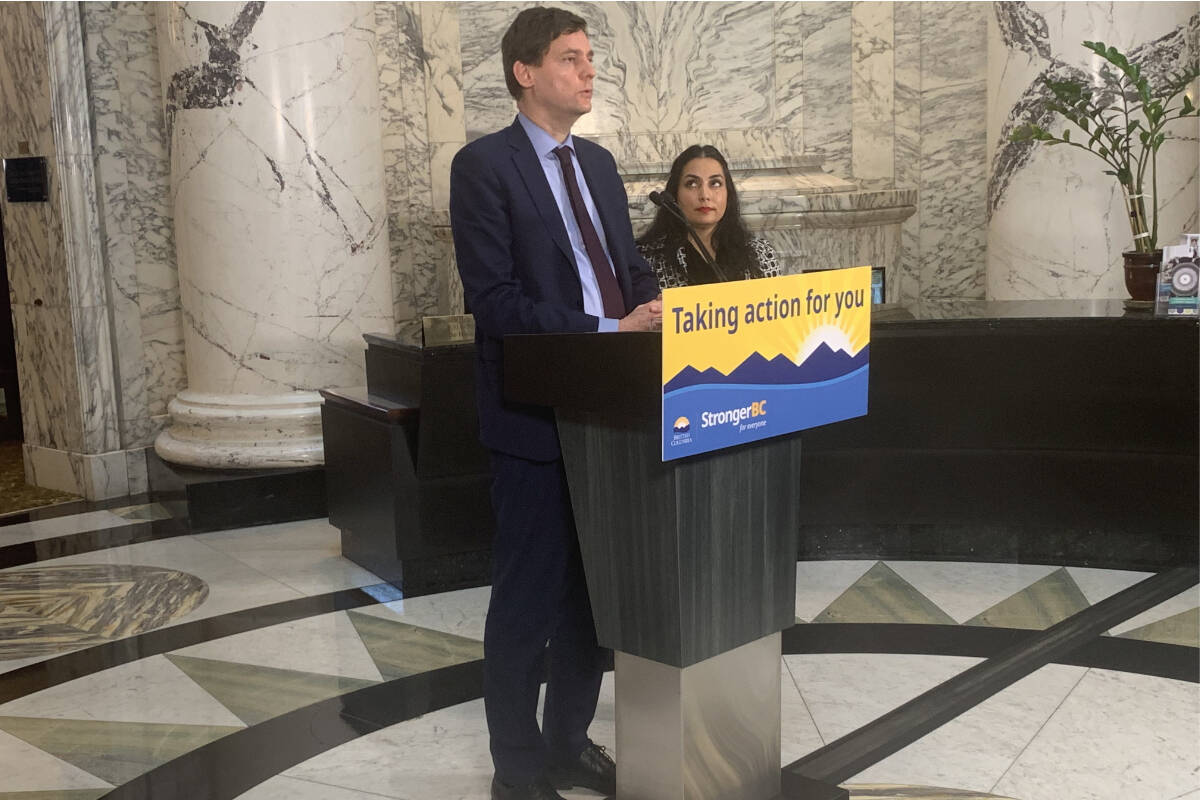B.C. has tabled legislation that would allow the province to sue social media giants, tobacco and drug companies and others for ‘hurting people’.
The legislation, tabled Thursday (March 14), would allow the province to “recover a broad range of health-related expenditures from wrong-doers” whether they are individuals or large corporations, the province announced.
“Our government previously warned social media giants, tobacco, drug companies and other big faceless corporations that we would be taking action to hold them accountable for the harm they are causing to people, including kids,” said Premier David Eby.
“My message is simple: Here in B.C., we expect you to operate in a way that doesn’t hurt people, period.”
If passed, the Public Health Accountability and Cost Recovery Act would allow the government to recover costs associated with the promotion, marketing and distribution of products that are harmful to adults and children. The act builds on previous legislation to enable litigation against tobacco and opioid manufacturers
According to the province, B.C. would also be able to claim public costs, such as hospital treatments and doctor appointments, as well as proactive and preventative measures used to address the risk of disease, illness or injury. In addition to companies as a whole, directors and officers of those companies could also be held liable.
This latest move follows action promised by Eby in late January to hold social media companies accountable after the suicide death of Prince George boy Carson Cleland.
Cleland was a victim of online sextortion, which included the sharing of intimate images to an online user who had pretended to be a young girl. Cleland then received extortion threats.
His parents, Ryan Cleland and Nicola Smith, had publicly come forward after their son’s death to raise public awareness. Their advocacy included a January meeting with Eby in Surrey, where he signaled that the legislation would be coming.
Companies behind various social media apps are not interested in protecting children, Eby said at the time.
“Their interest is in keeping kids online, engaged in their apps with ever more extreme content, so that they can serve them ads, so that they can make money for their shareholders.”
RELATED: Frank talks urged in wake of sextortion death of Prince George 12-year-old
Eby repeated this message Thursday at a news conference when he said that these “big faceless companies” will be “held accountable” in B.C.
He added that online targeting has been an issue for a long time, noting that Amanda Todd was sexually exploited more than a decade ago in 2012.
Eby clarified, however, that the new legislation will be for harms caused at a population level, not on an individual basis. The goal won’t be to sue for damages for families, but to recover province-wide costs that tax payers would otherwise have to shoulder.
BC United Leader Kevin Falcon said his party will review the legislation, noting he had called for this type of legislation two years ago.
“I think there’s got to be much accountability for a lot of these large social media companies to deal with the harm that often results, especially the attacks on women in public life, female reporters, trolls that are constantly attacking people making sexualized comments and sometimes a lot worse.”
But Falcon also questioned the motivation behind the bill. “In principle, I very much support it. But look, we are six months from an election,” he said. “So I think this is probably more performative than an actual thoughtful piece of legislation.”
BC Green Leader Sonia Furstenau said the party is reviewing the legislation, adding it includes some “interesting” aspects. But she would also like government to acknowledge that young people are experiencing the harmful effects of social media right now.
“Since 2020, we have been asking this government to bring psychologists under MSP, make six visits to a psychologist covered…so that people can get proactive mental health care, especially young people,” she said.
Furstenau would also like to see government recognize the potential of using this legislation to go after fossil fuel companies.
“When we are talking about harms in the world that we are in right now, the fossil fuel is delivering some of the greatest public health harms of any industry in history,” she said. “So I would hope to see government recognize that aspect. I’d also hope to see them stop subsidizing the fossil fuel industry to the extent that they continue to do in this province.”
-With files from Jane Skrypnek
READ ALSO: Canada’s new online harms bill: what you need to know
READ ALSO: B.C. judge sentences ‘sextortionist’ to 13 years in case involving Amanda Todd

